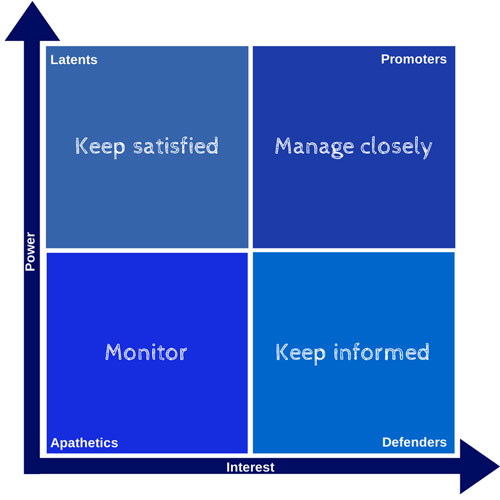5 more important things than project deadlines
The most critical factor when planning a project is the outset: it’s a common phenomenon that during the kick-off phase, the key stakeholders have only a big-picture view of the desired outcome, with no real thought for the unseen problems that may arise and interfere with any carefully planned out timetable. Getting things right at this point sets the foundation for a smooth operation from start to finish, which is the goal of any successful project.
That is why it is incredibly important for every project manager to have a clear and communicable timeline in place, which factors in (as best possible) any unseen future problems that may arise. Though it is said that projects live and die by their deadlines, strict adherence to project deadlines can cause a lot of trouble when unique project specific situations arise.
1. Planning for the unexpected
You will never be able to completely predict what will happen on a project, therefore that unpredictability must be taken into account. Paraphrasing an old military maxim by Graf von Moltke: “No plan survives contact with the enemy.”
The project plan needs to be sufficiently detailed and time-oriented to give those involved adequate direction and a sense of their part within the framework of the overall project, but flexible enough to accommodate the inevitable unforeseeable obstacles. In determining critical planning elements, buffers should allow not only for delays but also for tasks being completed earlier than planned. Yes, it does happen, so don’t waste these opportunities and be ready to move some tasks forward as well as having to bump them back.
2. Making SMART decisions
The foundation of successful project is allowing guidance by the accepted SMART (Specific, Measurable, Achievable/Agreed, Relevant and Time-bound) principle. Ignore any one of these and your project is unlikely to achieve its objective within commercially acceptable timeframes.
When under pressure from stakeholders, be prepared to demonstrate that urgent issues are those with legitimate time-related needs (soonest!) and distinguish these from priorities. Always prioritise tasks for which there is a pressing need for completion because of dependencies and importance over other tasks. Critical tasks obviously fall into the latter category.
3. Investing in stakeholder relationship management
Stakeholder relationships can often be the one factor that ruins an otherwise sound and realistic project timeline. Even discovering who all the stakeholders are when you are not a C-level executive of the organisation is almost a project in itself.
Using another military analogy: “Time spent in reconnaissance is seldom wasted.” Make sure you have first identified who the stakeholders are, what their needs and expectations are (they often vary a lot), and where they fit in the matrix of input and reporting. It is a must to engage all of them in the beginning of the project, and later on a regular basis according to this matrix.
4. Playing to your strengths
Effective project managers must have a multitude of skills, but we all have some that are stronger than others. Acknowledging your weaknesses will be the first challenge, compensating for them the next. By recruiting the right stakeholders to complement your skills in the weaker areas will not only enhance the engagement with those stakeholders, but leave you with more time and energy to exploit (and demonstrate) your strengths.
5. Working and celebrating success together
Feeling like you are ready to launch your next project? Here is a last piece of important advice you should always remember: manage from within, not from the top. Authentic engagement with the project team can’t be faked. Although the project may be distributed over a number of people with competing demands, the truly effective project manager constantly communicates with all involved in a co-operative way.
Make sure there are enough important milestones that are appropriate for small celebrations when achieved. Often the final milestone at the very end of a project can be a bit deflating. If you celebrate your small successes during the journey, you set the stage for something worthwhile when you get to the wrap.
Remember:
- Work SMART.
- Be nimble & ready to adapt to evolving circumstances.
- Choose people over process.
A successful project manager never compromises quality and health over deadlines. By considering the tips above, you will not only be successful by your management style, but your colleagues and will appreciate your human side.
Completing a project is more than just ticking the boxes from your project plan. Showing responsibility and quality results throughout a transparent project communication strategy, will get you further in your career and you will not only gain trust and respect for your performance, but may also build great personal relationships going forward.


